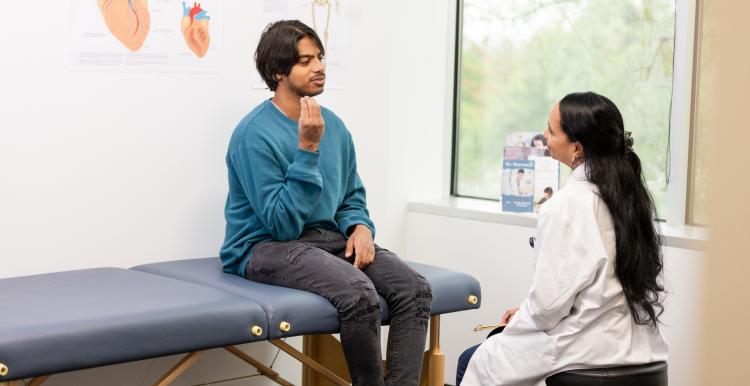Greater access and consistency: What people want from health and social care services

Across the country Healthwatch have been helping health and social care leaders to use people’s views to make positive changes – from helping GP practices in Crawley become more autism friendly, to making sure care homes in Middlesbrough are equipped to support people with dementia.
Our network of 152 local Healthwatch published more than 1,745 reports in 2016-17, bringing together what people from across the community want from local care.
Our fifth annual report to Parliament, draws on this insight to highlight the top issues people have spoken to Healthwatch about in the last financial year.
Our report finds that whilst many people are getting the support they need, there is great variation in the availability and quality of services across the country.
Below is a summary of the areas people spoke to Healthwatch about that are in need of the greatest attention, and how we’re going to help address them.
What do people think about today’s services?
Mental health
The Government and the NHS have significantly increased their focus on improving mental health support, but accessing the right help at the right time can still be a challenge for many. In the year ahead, we’ll do more to help services understand the improvements the public want to see. We’ll also help make sure that people are diagnosed in a timely and consistent manner, are given support sooner, and are treated before they reach crisis.
Primary care
Most people are satisfied with the care they receive from GPs, dentists and pharmacists, however, there is still room for improvement. The process of booking appointments is a significant source of frustration for people. The best way for services to find out what needs to improve is to ask people for their feedback. The CQC said in its recent primary care report that understanding people’s needs is key to delivering outstanding care. Over the next year, we will work with our network to encourage GP practices to remind patients how they can share their views, and to demonstrate how they’ve been used to make changes.
Hospital care
People value hospital staff and recognise the pressure they’re under. However, their experiences of going to hospital - from getting to appointments, to being discharged - vary greatly. Local Healthwatch have heard about problems with communication, coordination and the support available once people have left hospital. Our network will therefore continue to work with hospitals and other services to help them understand how they can improve people’s experiences.
Social care
People told us that some care providers don’t ask what they want from their care, and that they’d like to be more involved with decisions about how they’re sported or cared for. We’re going to be doing more research into what people want from social care in the future. We’ll use our findings to show commissioners and social care providers how they can use people’s feedback to improve.
Time to listen
In the report, Chair of Healthwatch England Jane Mordue argues that listening to people who use services is key to addressing the variation that can exist in experiences of care. Although there has been progress when it comes to services understanding and acting upon what people want from health and care, there is still a long way to go before this is common place.
Jane said:
“Over the last year, we have seen some inspirational examples of people speaking up, highlighting what’s working well and where things need to improve. We have also seen outstanding services listening to what people want and using their feedback to change the way care is delivered.
“This is encouraging, as we know that the best services are the ones that understand and respond to their customers. But whilst there has been progress, there is still a long way to go before this approach to gathering and using feedback becomes commonplace across health and social care.
“Our research shows that the majority of people are willing to share their views to help improve services but people need to know how they can share their view and professionals must be given the time and space to listen properly.”
Download the report
Find out more about what we did in 2016/2017 in our Annual Report, Speak Up.


